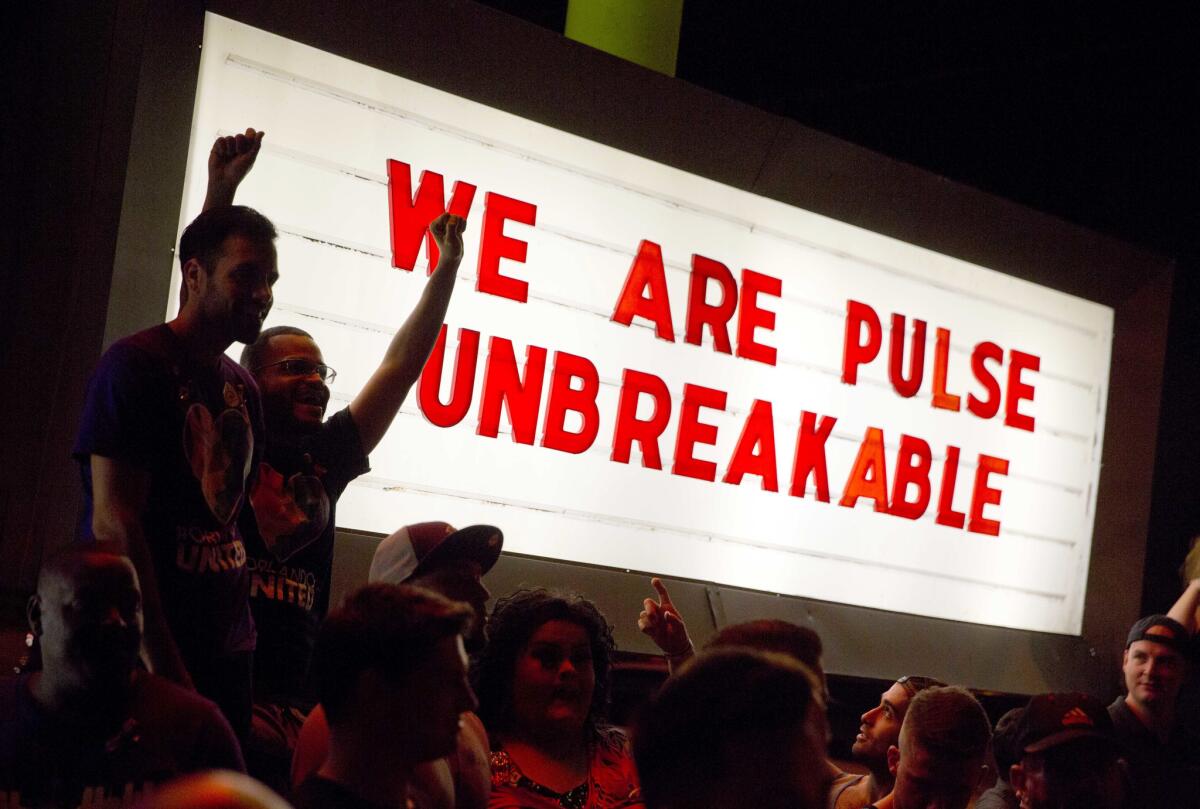Intersections: Policy change is shadowed by identity politics

Club goers gather outside Parliament House, an LGBT nightclub, close to the one week anniversary of the Pulse nightclub mass shooting late Saturday, June 18, 2016, in Orlando, Fla.
Last week, a gunman walked into a gay nightclub in Orlando, Fla., and shot 49 people dead. He injured more than 50 more. The United States descended into chaos, wondering why and how this could happen again and again and again.
The country feels broken, with a culture that has steadily focused on polarization, isolation and hate. I spent most of the week, just like almost everyone I knew, trying to make sense of what all of this meant.
MORE: Read previous columns from Liana Aghajanian >>
I fluctuated between sadness and rage, one minute realizing that a Facebook friend personally knew one of the victims, the next minute seeing the tweets of elected officials offering “thoughts and prayers” while they were simultaneously called out by people like Igor Volsky, the deputy director of the Center for American Progress Action Fund for their financial ties to the National Rifle Assn. and other gun rights groups.
The gunman’s motives, whether it was religion, homophobia, mental illness, a struggle with belonging and identity, or most likely a combination of all of those things, will be fodder for the media for many weeks to come.
I don’t know what is left to say about the horror that has unfolded once again in America. So many people have said it much more eloquently than I could, so many have rightfully expressed their anger and frustration, and I hope some of the conversations I’ve seen finally move from the world of prayers to the world of necessary policy change.
Two years ago, I found solitude and a story in a Los Angeles gay club not so different than the one that became the scene of the crime.
I’ve been remembering my time there, how I actually felt comfortable in a club for once, how the atmosphere was full of the kind of energy I felt like I could feed on forever, how this felt like such a safe space, whether you were gay or not, how when the intoxicating music began, I wish I could have put down my notebook and danced, how I wrote a story after I was given a chance to get a glimpse into a world that intersected faith, ethnicity and sexuality, a story that would eventually become the reason I somehow rose above over 200 other writers in a national competition and ended up winning the house that I am writing this from.
My time at the club was unforgettable. I told the story of Middle Eastern gay men and women from Iran, Turkey, Egypt, Jordan, Armenia and Syria and the way in which they blended their heritage and sexual identities in a sacred space.
As the shooting and its details unfolded, I could not stop thinking about how easily what happened in Orlando could have happened where I had stood for weeks, that nowhere felt safe anymore, absolutely nowhere.
But I was also reminded that things, even as abstract as identities, can co-exist together, that people are complex, that narratives are usually more messy and multidimensional than they are neat, and that one identity — whether it’s being gay, Muslim or American — does not have to negate or be in conflict with the other.
--
LIANA AGHAJANIAN is a Los Angeles-based journalist whose work has appeared in L.A. Weekly, Paste magazine, New America Media, Eurasianet and The Atlantic. She may be reached at liana.agh@gmail.com.